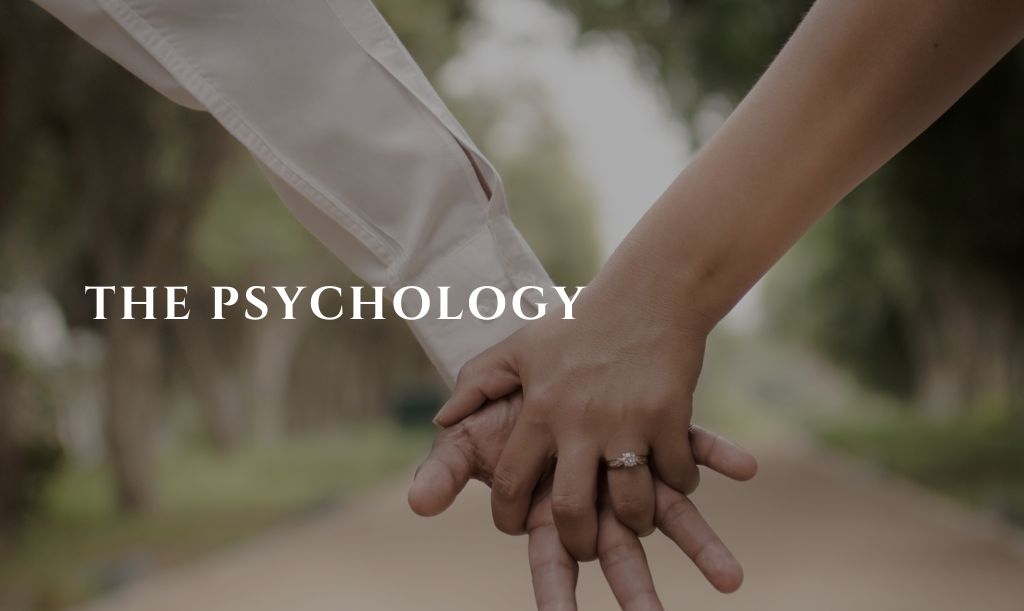What does it mean when a guy uses we instead of I? Find out in this comprehensive article!
Language is a powerful tool that shapes our thoughts, perceptions, and interactions.
It serves as the conduit through which we express ourselves, convey ideas, and connect with others.
Within the vast expanse of language lies an intriguing phenomenon: When a guy uses “we” instead of “I.”
This subtle linguistic choice has the potential to reveal much about an individual’s mindset and their approach to communication.
In this article, we shall delve into the intricacies of when a guy uses “we” instead of “I,” exploring its psychological underpinnings and the social contexts in which it prevails.
Through this exploration, we hope to unravel the deeper implications behind this linguistic phenomenon.
Definition Of The Usage Of “We” Instead Of “I”
Before embarking on our journey into understanding this linguistic quirk further, let us first establish a clear definition.
When a guy uses “we” instead of “I,” it refers to their tendency to frame their thoughts, experiences, or opinions in collective terms rather than expressing them from an individual standpoint.
This linguistic choice may manifest in various contexts – be it personal conversations, professional discussions, or even public speeches – subtly altering how they present themselves and engage with others.
The Psychology Behind “We”

In the realm of language and communication, one cannot overlook the powerful influence that pronouns hold.
Among them, the usage of “we” instead of “I” is a linguistic phenomenon that deserves attention.
This linguistic choice reflects a deeper psychological desire for belonging and inclusivity.
When a guy uses “we” in his speech, he is not merely speaking on behalf of himself; he is actively seeking to establish a connection with others.
Sense of Belonging and Inclusivity
By employing the inclusive pronoun “we,” individuals are signaling their desire to be part of a collective.
It conveys an inherent longing for acceptance and integration into a larger social group.
This sense of belonging is deeply rooted in our evolutionary history as communal beings where survival relied on cooperative efforts.
Using “we” allows individuals to tap into this primal need, creating bonds and fostering relationships.
Establishing a Connection with Others
The power of language lies in its ability to bridge gaps between individuals.
When someone uses “we,” they are actively inviting others to join them in shared experiences, ideas, or beliefs.
It serves as an open invitation for collaboration and mutual understanding.
By extending this linguistic hand, people form connections based on commonalities rather than differences.
Strengthening Relationships and Building Trust
Language plays a crucial role in building trust among individuals.
The use of “we” cultivates an atmosphere where transparency and openness can thrive.
By emphasizing shared experiences or goals, it creates a sense of unity that strengthens relationships over time.
Moreover, using inclusive pronouns demonstrates humility and places value on collective achievements rather than individual glory.
Shared Responsibility and Accountability
The use of “we” extends beyond mere linguistic preference; it carries profound implications for responsibility and accountability.
When a guy opts for “we,” he is implicitly acknowledging a shared burden.
It signifies his willingness to distribute credit and deflect blame collectively, fostering an environment of fairness and reciprocity.
Distributing Credit and Deflecting Blame
The usage of “we” allows individuals to avoid taking sole credit for accomplishments, promoting a culture of collaboration rather than individual heroism.
By attributing success to the collective effort, individuals demonstrate humility and recognize the contributions of others.
Additionally, in times of failure or mistakes, using “we” allows for the dispersion of blame among the group rather than singling out individuals, preserving relationships while learning from collective errors.
Fostering Teamwork and Collaboration
“We” lays the foundation for teamwork and collaboration by setting a cooperative tone in interactions.
Choosing this pronoun conveys an intrinsic belief that together everyone achieves more.
It encourages individuals to work synergistically towards common goals, sparking innovation and creativity through diverse perspectives.
Romantic Relationships: Creating a Sense of Unity as a Couple
When it comes to romantic relationships, the use of “we” instead of “I” can be an incredibly powerful tool.
By employing this linguistic technique, individuals signal their commitment to unity, solidifying their bond as a couple.
The word “we” encapsulates the idea that both partners are in this together – facing life’s challenges as a united front.
This linguistic choice also serves to establish a shared sense of identity, essentially merging two individuals into one cohesive unit.
It allows couples to forge their own unique narrative, intertwining their lives and experiences.
By consistently using “we,” partners reinforce the notion that they are inextricably linked – sharing not only joys and triumphs but also trials and tribulations.
Friendship Circles: Reinforcing Group Identity and Solidarity
In friendship circles, the use of “we” is prevalent and for good reason.
When friends come together, they create a tight-knit group with its own distinct identity.
By incorporating “we” into conversations and interactions, individuals reaffirm their membership within this social circle.
The power of collective language lies in its ability to strengthen bonds among friends by emphasizing solidarity.
This linguistic choice reinforces the group’s shared values, inside jokes, and common experiences – all vital components for fostering long-lasting friendships.
Moreover, using “we” allows individuals to reminisce collectively about past adventures or shared memories.
It invokes nostalgia while reinforcing the notion that these experiences were not just personal but rather part of a broader tapestry woven by the entire friend group.
Professional Environments: Cultivating Camaraderie Among Colleagues
In professional environments such as workplaces or team-based projects, utilizing “we” instead of “I” has numerous benefits.
By employing collective language, individuals cultivate a sense of camaraderie among their colleagues, leading to increased collaboration and productivity.
When colleagues use “we” in team settings, it creates an atmosphere that encourages open communication and mutual support.
This shared language fosters a spirit of cooperation, where each member feels like an integral part of the collective effort.
Additionally, using “we” can help diffuse hierarchical barriers within the workplace.
It implies that everyone is working towards a common goal and contributes to diminishing the distinction between managers and subordinates.
Overall, the strategic use of “we” in social contexts such as romantic relationships, friendship circles, and professional environments serves as a powerful tool to establish unity, reinforce group identity, foster collaboration and teamwork.
It highlights our innate desire for connection and belonging while emphasizing the importance of shared goals and experiences.
The Subtle Implications of “We”

In a world where self-promotion and vanity often prevail, the strategic use of “we” instead of “I” can be a masterstroke in communication.
By employing collective language, individuals can showcase their achievements while maintaining humility.
It is an art that requires finesse, as one must strike a delicate balance between acknowledging personal contributions and recognizing the collaborative efforts of others.
Through this linguistic maneuver, individuals can avoid coming across as self-centered or egotistical, ensuring that their accomplishments are celebrated within the context of a shared success story.
Avoidance Of Direct Confrontation Or Conflict
The use of “we” in place of “I” not only serves as a shield against personal responsibility but also acts as an effective tool for sidestepping direct confrontation or conflict.
By presenting opinions or controversial statements as shared perspectives, individuals can diffuse tension and mitigate potential backlash.
It allows for the diffusion of accountability among a group rather than placing it squarely on one person’s shoulders.
However, this strategy comes at the cost of individual authenticity and accountability, blurring the lines between genuine beliefs and mere conformity to maintain harmony.
Implying Consensus Or Majority Opinion
When someone adopts the inclusive pronoun “we,” they subtly imply consensus or majority opinion without explicitly stating it.
This linguistic tactic creates an illusion of widespread agreement and influences others through social proof.
By aligning themselves with a presumed collective viewpoint, individuals seek to persuade others by leveraging the power of numbers and conformity bias.
However, it is essential to recognize that this manipulation tactic undermines genuine diversity of thought and inhibits healthy debate within society.
The strategic usage of “we” carries profound implications in communication dynamics – from sharing accomplishments with modesty to avoiding conflicts or imposing consensus where there might not be one.
While this linguistic maneuver can serve as a powerful tool, it is crucial to remain vigilant and question the motives behind its implementation.
By being aware of the subtle implications, we can navigate through conversations with both authenticity and discernment, ensuring that our words truly reflect our beliefs and values.
The Fine Line Between Authenticity and Deception
While adopting the use of “we” can foster a sense of unity and belonging, it is vital to strike a balance between personal authenticity and conforming to societal expectations.
We must question whether our desire for acceptance has led us to sacrifice our originality on the altar of conformity.
Are we losing sight of our unique individual perspectives under the pressure to fit into the collective whole?
It is crucial to navigate this line carefully, preserving our identities while embracing the power of community.
Maintaining Individuality Within Collective Narratives
In this age where individualism is often praised as an ultimate virtue, there is a danger that our voices might get lost in the chorus of “we.”
Yes, unity is admirable, but not at the expense of sacrificing our own thoughts, ideas, and experiences.
Each person’s perspective adds depth and richness to any collective narrative.
We must resist homogeneity by allowing space for dissenting opinions and celebrating diverse viewpoints within our shared stories.
Embracing both personal identity and group affiliation can lead us towards harmonious coexistence where collaboration thrives without suppressing individual brilliance.
When A Guy Uses We Instead Of I: Conclusion
In an era where division seems to dominate public discourse, there is something undeniably powerful about language that fosters inclusivity and unity.
The use of “we” instead of “I” has its merits in creating connections, sharing responsibility, and promoting teamwork.
However, we must be mindful not to lose ourselves in these collective narratives – for it is through maintaining our individuality that we truly contribute something unique to society.
Let us embrace the power of language as a tool for building bridges, but let us also remember to honor our own voices and perspective.
By striking a balance between personal authenticity and group affiliation, we can weave together a tapestry of diverse opinions, united in our collective pursuit of progress.
So, let us choose our words wisely and craft narratives that empower both ourselves and the communities to which we belong.
In doing so, we might just find a path towards genuine understanding and positive change.
Related Articles:
- https://lovebridgeguides.com/when-someones-eyes-sparkle-at-you/
- https://lovebridgeguides.com/my-boyfriend-would-rather-be-alone-than-with-me/
- Does A Prom Date Mean Anything? (Answered!) - 20 February 2024
- Boyfriend Refers To Me In Third Person (Explained!) - 20 February 2024
- Is Sending Memes Flirting? Find Out Here! - 20 February 2024

